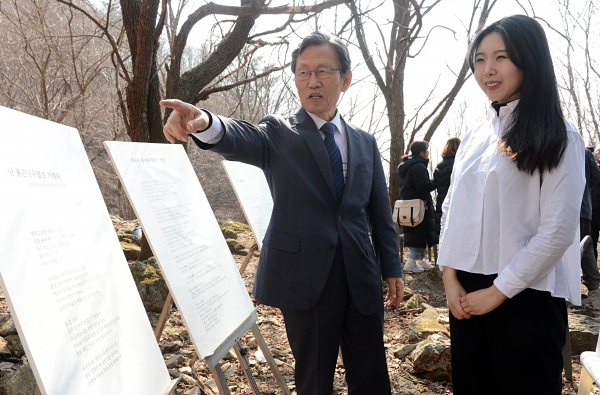Throughout my journey in life, I've navigated the intricate and beautiful maze of human relationships. The wisdom I've gained along the way is like a finely aged wine, growing deeper and more fragrant with time.
As a pastor and as an individual, the most crucial lesson I've learned from interacting with countless people is recognizing the inherent value in every person. I've always kept the biblical verse "Consider others better than yourselves" close to my heart. This goes beyond mere humility; it embodies a profound wisdom in acknowledging the dignity of others.
I've strived to apply this principle when teaching students, conversing with juniors, and even in dealing with my own children. Respecting each individual's unique personality and rights isn't just about courtesy; it's the key to understanding the essence of human existence. Raising my children especially made me realize how vital it is to recognize and respect their individual personalities and talents from an early age.
Looking back, this attitude has significantly enhanced the quality of relationships in all areas of my life. Considering others better than myself has, paradoxically, made me more humble and mature. It has also provided me with opportunities to learn and grow from a diverse range of people.
Life, after all, unfolds within relationships. It's not an exaggeration to say that how we form and nurture these relationships determines the quality of our lives. I'm deeply grateful that through this simple yet profound principle, I've been able to live a more meaningful and enriching life.
I've constantly reminded myself of this lesson in the small moments of daily life. Every morning when I wake up, I think about how I'll treat the people I'll encounter that day. I've tried to think from their perspective, make a genuine effort to understand them, acknowledge their strengths, and embrace their weaknesses.
This has been the most precious wisdom I've gained through decades of life: true richness in human relationships comes not from flaunting one's talents and abilities, but from using them to understand and help others. When we live with this attitude, we can form deeper, more meaningful relationships and discover true value in life.
As a pastor and as an individual, the most crucial lesson I've learned from interacting with countless people is recognizing the inherent value in every person. I've always kept the biblical verse "Consider others better than yourselves" close to my heart. This goes beyond mere humility; it embodies a profound wisdom in acknowledging the dignity of others.
I've strived to apply this principle when teaching students, conversing with juniors, and even in dealing with my own children. Respecting each individual's unique personality and rights isn't just about courtesy; it's the key to understanding the essence of human existence. Raising my children especially made me realize how vital it is to recognize and respect their individual personalities and talents from an early age.
Looking back, this attitude has significantly enhanced the quality of relationships in all areas of my life. Considering others better than myself has, paradoxically, made me more humble and mature. It has also provided me with opportunities to learn and grow from a diverse range of people.
Life, after all, unfolds within relationships. It's not an exaggeration to say that how we form and nurture these relationships determines the quality of our lives. I'm deeply grateful that through this simple yet profound principle, I've been able to live a more meaningful and enriching life.
I've constantly reminded myself of this lesson in the small moments of daily life. Every morning when I wake up, I think about how I'll treat the people I'll encounter that day. I've tried to think from their perspective, make a genuine effort to understand them, acknowledge their strengths, and embrace their weaknesses.
This has been the most precious wisdom I've gained through decades of life: true richness in human relationships comes not from flaunting one's talents and abilities, but from using them to understand and help others. When we live with this attitude, we can form deeper, more meaningful relationships and discover true value in life.

